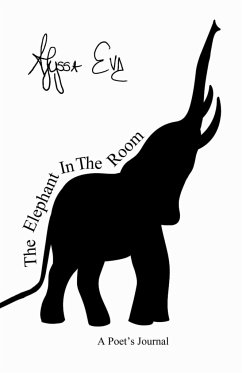
The Inner Room
Poems
Versandkostenfrei!
Versandfertig in 1-2 Wochen
13,99 €
inkl. MwSt.

PAYBACK Punkte
7 °P sammeln!
James Merrill's new collection, The Inner Room, combines symmetry with surprise.The first and last of its five parts include, in addition to diverse two masterly long poems each ('Morning Glory' and 'A Room at the Heart of Things' in Part I and 'Walks in Rome' and 'Losing the Marbles' in Part V). The central section, an arrangement of shorter poems and a bittersweet meditation written some years ago but not collected until now, is framed by the book's most startling accomplishments. In Part II Merrill returns to the verse drama, a genre that he has not worked in since the 1950s, when 'The Bait...
James Merrill's new collection, The Inner Room, combines symmetry with surprise.The first and last of its five parts include, in addition to diverse two masterly long poems each ('Morning Glory' and 'A Room at the Heart of Things' in Part I and 'Walks in Rome' and 'Losing the Marbles' in Part V). The central section, an arrangement of shorter poems and a bittersweet meditation written some years ago but not collected until now, is framed by the book's most startling accomplishments. In Part II Merrill returns to the verse drama, a genre that he has not worked in since the 1950s, when 'The Bait' was produced off-Broadway. 'The Image Maker' is an exquisitely fashioned one-act play about a santero, a saint-maker, whose carved figures are objects of veneration and sources of power in his Caribbean village. The santero also practices santeria, the Latin American religion that syncretizes the Yoruba lore which the slaves brought with them from West Africa and the Catholicism imposed on them in their new world. In this exotic context, Merrill rings changes on themes developed in his epic poem The Changing Light at Sandover. Part IV, a sequence entitled 'Prose of Departure, is itself another striking departure from Merrill's recent work. Set mostly in Japan, it intertwines narratives of beginnings and endings even as it intersperses its prose with hokku in a manner reminiscent of Basho's travel journals -- though the delicately managed rhymes set Merrill's cachet upon the form. Among the other work here are poems in Sapphics and in syllabics; a villanelle whose recursions celebrate memory', and a doubled anagram, in which the English poem is shadowed by a French version" Stephen Yenser author of The Consuming Myth, The Work of James Merrill












